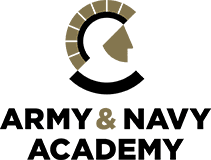Applying to college can be an intimidating process at first. However, college counseling services in high school can help any student feel more confident when applying to colleges and universities. They will help you navigate the challenges listed below and provide support and guidance.
- Know what colleges are looking for in applicants – At your public or private school, check in with your college counselor (aka academic or guidance counselors) to know what colleges are looking for in applicants and to help you create your college application list. Bear in mind that colleges and universities are primarily seeking applicants with well-rounded educational backgrounds and experiences. With this in mind, make your application stand out by including: clubs, trips, student government, community service, and athletics. In addition, colleges want to see that you have the right mindset to succeed, so anything that will speak to your character will count. According to BigFuture, admission officers look for “leadership, a willingness to take risks, initiative, a sense of social responsibility, a commitment to service, and special talents and abilities”.
- Create a list where you intend to apply. At many private schools, the academic counselors help every student create 3 reach, 3 target, and 3 likely schools. This helps you ground yourself but also encourages you to aim high. Make sure you become familiar with the admission criteria at each of the schools on your list as they could vary. This will save you countless hours and ground your expectations.
- Attend college workshops at your school – College counseling services at most private schools typically include workshops for parents and students. These services can be instrumental in helping you gain admission into a college of your choice. For instance, academic counselors at a military boarding school for boys in California manage academic schedules, provide college workshops, assist students in making grounded choices, and work with students on the application process. In addition, they offer test prep and information about financial aid and college scholarships. Beyond that, they are also there to provide emotional and social support.
- Follow the college application process and deadlines carefully – Make sure you follow all of the required steps and meet the deadlines. Colleges need to ensure that all applicants follow the same requirements and they will quickly dismiss your application for omissions, errors, or late submission. At most private schools, academic counselors will review college application steps during workshops and in individual sessions, including the following:
- Application Form – You can apply through the Common App (up to 20 colleges) or to the institution directly. There is no distinct advantage given to either type, but make sure you address every question accurately and thoughtfully. Watch for spelling and punctuation errors too!
- Essay – The Common App and other applications include essays. Many colleges have prompts like “Overcoming Challenges,” so be prepared to think about your life and any challenges or adversity you have faced in your life. This is a chance to make your application stand out. Many professionals recommend allowing yourself 2-3 months to complete the application so your essays are polished and in excellent shape.
- Letters of Recommendation – According to IvyWise, “most colleges and universities require one to three recommendations, usually from your guidance counselor and at least one teacher.” It is important to ask for letters early to avoid putting last-minute pressure on faculty and your guidance counselor to meet your deadline. Choose faculty members who know you well enough to speak to the type of person you are, not just academics.
- Transcripts and Records – Throughout high school, make sure your records are all in order. Especially if you have moved and transferred to more than one high school, you want to make sure you notify the registrar(s) and/or counselor early on and follow through on school record submissions. Check for details on the Common App or college applications for details on uploads and/or where to mail records.
- SAT and ACT Scores – The College Post reports that “almost two-thirds of U.S. colleges are now going test-optional.” If your college application requires test scores, most boarding schools offer SAT and ACT exam prep and operate as test sites. They often hold workshops and other services to help students do well on college entrance exams, but also on Advanced Placement exams as well. Some test blind and test-optional universities, include: Claremont-McKenna, Columbia University, Cornell University, Dartmouth, Johns Hopkins, Brown University, ASU, Chapman, and even many of the University of California campuses.
- Extracurricular, Awards, Service – Remember, you are more than just your grade point average (GPA) and colleges are looking at the whole person. With freshmen dropout rates rising, they want to have some assurance that you have the tenacity and perseverance to earn an undergraduate degree. Make a list of all of the clubs, community service, student government positions, foreign exchange student experiences, and other factors that will influence your admission packet in a favorable light.
- Find ways to manage college admission stress – It is important to have an open talk with your parents and counselor to keep stressors in check. Make sure you are leading a balanced life with time to study, rest, relax, and have fun! Work on ways to incorporate exercise, sports, walking in nature, mindfulness, and other methods to lower your stress. There are some great apps to help you like FocusCalm and HeadSpace, so consider checking these out.
- Go on college campus tours in your area and ask questions – Campus tours will help put your mind at greater ease as you will begin to address questions, concerns, and visualize your life as a young adult living away from home. You might begin by attending a college campus tour nearby with friends or while you are on a family vacation. Choose colleges selectively and prepare questions in advance, dress appropriately, know where to park, and try to eat a meal on campus. Make it fun!
- Begin preparing early in your freshman year – Students who prepare early for college admission typically have a much easier time in their junior and senior years of high school. Avoid procrastination and prepare a long range plan beginning in your freshman year and do a review of your school’s college matriculation. Whether you attend a public or a private school, this is a time to map out key milestones. Milestones for each year could include: completion of core college prep classes, participation in at least two clubs per year, attainment of a leadership position, a specific number of community service hours, and demonstration of talents in the visual and performing arts.
- Do your best in classes – According to College Data, “the average acceptance rate for all four-year colleges in the U.S is about 66 percent.” Powerful Prep cites the average is just above 9% for Ivy League and the service academies average about 9.8% as noted by Kiplinger. Depending on the type of college or university, you will need to understand the expected GPA and other criteria. For the University of California campuses, the range can be anywhere from 14% for UCLA, but as high as 85% for University of California, Merced based on data from U.S. News.
- Don’t overdo AP and Honors – If you overdo advanced placement and honors classes, you run the risk of high stress and even a lower grade point average. Of course, universities want to see evidence of your academic abilities, but don’t do this at the expense of life balance. If you are looking at the Ivy League and Top 20 Schools in the U.S., Crimson Education recommends taking 3-4 AP or honors classes each year.
- Do things to enhance your application – Colleges want to see a balance in your life between academics and extracurriculars like: sports, ASB, clubs, community service, summer jobs, internships, travel and other broadening experiences. This allows them to understand how you will contribute to the college campus, beyond just being a strong student.
As you think about your own personal college admission challenges, keep in mind that higher education has its own set of challenges. Challenges include: demographic trends (lower population growth), diversity pressures, issues around safety and health, higher drop-out rate in freshman year, supporting emotional and social health, rising tuition costs, and more pressure to help grads get jobs. So head out there and face your challenges, but temper your stress by knowing that colleges are facing challenges too!

Candace Heidenrich is the CEO of Aperture Advisory Associates, where she works with private secondary and higher education leaders to strengthen programs and practices. She founded Aperture in 2018 after more than a decade in a senior administrative role at a boarding school in California. Additionally, she held faculty and chair positions at private schools and colleges in Los Angeles and Ojai. Her background also includes director and executive level positions with start-ups and Fortune 500 corporations.
While earning her B.A. in Education and Humanities in the Lawrence Henry Gipson Scholar program, she studied abroad at Oxford before pursuing her master’s at the University of California, Santa Barbara. A frequent speaker at national conferences, she is a recognized thought leader and authority on enrollment management and marketing best practices.